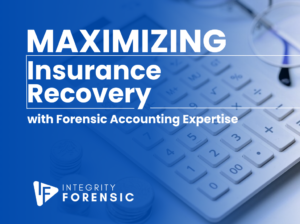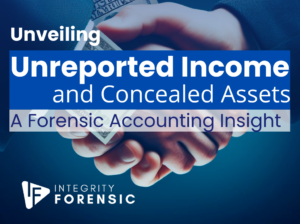In today’s complex business landscape, fraud poses a significant threat to organizations of all sizes and industries. While fraud can manifest in various forms and strategies, one underlying factor that often contributes to its occurrence is a lack of ethics. In this thought-provoking blog, we will explore the relationship between ethics and fraud, emphasizing the importance of establishing a strong ethical framework within your organization. By understanding the root causes of fraud and implementing robust ethical practices, you can safeguard your business and promote a culture of integrity.
The Link Between Ethics and Fraud
Ethics form the foundation of an organization’s values, guiding its behavior and decision-making processes. When ethical standards are compromised or disregarded, it creates an environment where fraud can thrive. Fraudsters exploit weak ethical practices, taking advantage of loopholes, insufficient controls, and a lack of oversight. By prioritizing ethics, businesses can create a strong deterrent against fraudulent activities, fostering transparency, accountability, and trust.
Identifying the Warning Signs
To effectively combat fraud, it is crucial to recognize the warning signs that may indicate an ethical breakdown within your organization. These signs may include:
- Unexplained financial discrepancies or irregularities.
- Unusual or excessive financial pressure on employees.
- Instances of favoritism or nepotism.
- Lack of transparency in financial reporting and decision-making.
- Disregard for internal control procedures.
- Employees exhibiting extravagant lifestyles or unexplained wealth.
- Whistleblower complaints or anonymous tips highlighting unethical behavior.
Creating an Ethical Culture
Establishing an ethical culture starts from the top and permeates throughout the organization. Here are key steps to foster an environment of integrity:
Leadership Commitment: Leaders must lead by example, embodying ethical behavior and consistently reinforcing ethical expectations. This commitment should be clearly communicated to all employees.
Code of Conduct: Develop a comprehensive code of conduct that outlines expected ethical standards and provides guidance on decision-making in various scenarios. Regularly review and update the code to reflect evolving ethical challenges.
Ethical Training and Awareness: Conduct regular training programs and workshops to educate employees about ethical principles, fraud prevention, and the importance of reporting suspicious activities. Encourage open dialogue and the reporting of concerns without fear of retaliation.
Robust Internal Controls: Implement and maintain strong internal controls, including segregation of duties, periodic audits, and regular monitoring of financial transactions. These measures reduce the opportunity for fraud and enhance detection capabilities.
Whistleblower Protection: Establish a confidential reporting mechanism, such as an anonymous hotline or dedicated email, to encourage employees to report potential fraud or unethical behavior. Ensure strict protections for whistleblowers to prevent retaliation.
Rewards and Recognition: Recognize and reward employees who demonstrate ethical behavior and contribute to fraud prevention efforts. This reinforces the importance of ethics and encourages a positive ethical climate.
Continuous Monitoring and Improvement: Regularly assess the effectiveness of your ethical practices and controls. Seek feedback from employees and external stakeholders to identify areas for improvement and take proactive measures to address vulnerabilities.
In summary, fraud is a significant risk that can harm businesses both financially and reputationally. By recognizing the link between ethics and fraud, organizations can proactively address the root causes of fraudulent activities. By establishing a strong ethical framework, promoting transparency, and fostering a culture of integrity, businesses can minimize the risk of fraud, protect their stakeholders’ interests, and preserve their reputation. Remember, fraud prevention begins with a commitment to ethical practices at all levels of the organization. Embrace ethics as the cornerstone of your business and take proactive steps to safeguard against fraudulent activities.
Our team at Integrity Forensic comprises highly skilled forensic accountants ready to provide you with expert assistance. Contact us today for a complimentary consultation by dialing 855-673-9999, or feel free to reach out to us via email at questions@integrityforensic.com. We look forward to addressing your needs.





